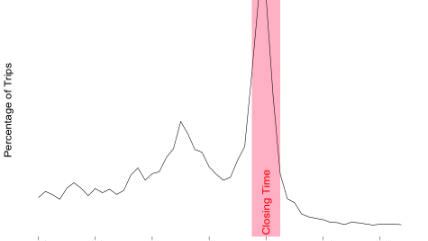More Evidence Uber Keeps People From Drunk Driving

Ever since innovative ride-sharing services like Uber and Lyft started gaining popularity, people have made the intuitive assertion that these services could cut down on drinking and driving. People will choose an affordable, safe alternative to drunk driving if that alternative is readily available.
Just a few weeks ago, Pittsburgh resident Nate Good published a quick study that offered the first hard evidence that DUI rates may be decreasing in cities where Uber is popular. An analysis of Philadelphia's data showed an 11.1 percent decrease in the rate of DUIs since ridesharing services were made available, and an even more astonishing 18.5 percent decrease for people under 30.
As everyone knows, however, correlation does not equal causation. Good's quick number-crunching was too simplistic to draw any overarching conclusions, but it did open the door for future studies. A recent, deeper analysis from Uber makes the case even stronger that ridesharing services may be responsible for a decline in DUIs.
The first thing Uber did was use its own data to see if people disproportionately called for Uber cars from bars in comparison to other venues. And indeed:
Requests for rides come from Uber users at bars at a much higher rate than you might expect based on the number of bars there are in the city. The fraction of requests from users at bars are between three and five times greater than the total share of bars.
Next, they used government data to find out when deaths from DUIs are most likely to occur. Fatalities due to drunk driving start to peak at midnight, are the highest from 12:00-3:00 AM, and happen much more often on the weekends. Uber then gathered their own internal data and found that Uber transactions spiked at the times when people are most likely to drink and drive (as depicted in the chart above).
There remains plenty of room for more studies on how Uber is affecting transportation trends. But early evidence for a positive impact—an impact that goes far beyond mere consumer convenience—is already compelling.


Show Comments (32)